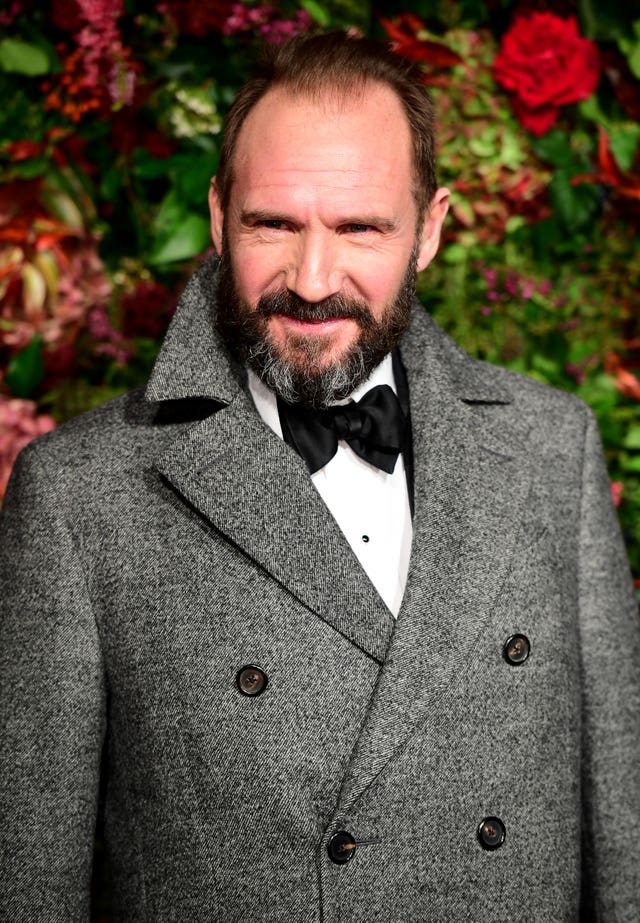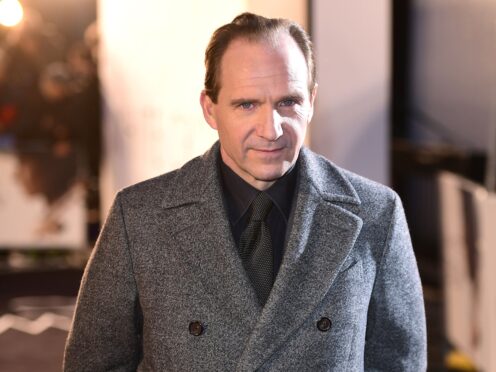Ralph Fiennes has said he feels identity can be “calmly acknowledged” without having to “create more elbow room” to reflect who we are.
The Bond actor, 58, stars in a new stage adaptation of a set of four poems written by the late TS Eliot, titled the Four Quartets, at the Harold Pinter Theatre in London.
Eliot was American-born but became a naturalised British citizen who served in the Second World War as an air raid warden during the London Blitz and these experiences are referenced in his poetry.
Speaking on The Andrew Marr Show, the actor was questioned whether Eliot’s Four Quartets were in a sense “patriotic poems”, to which the actor replied: “Well, they’re not flag waving, they’re just about identity.
The incredible Ralph Fiennes stars in the world premiere of T.S. Eliot's Four Quartets, playing a strictly limited run here this November! https://t.co/5HSONrk860
Priority booking for this very special show is now open, with public booking opening at 12pm. pic.twitter.com/3DY61L1sFW
— HaroldPinterTheatre (@HPinterTheatre) July 1, 2021
Fiennes added: “The whole thing of patriotism is sort of … I mean it’s just who we are, our identity can be calmly acknowledged without having to create more elbow room about who we are.
“I think this was a place under threat, and it was England and that’s where he lived.
“The sense of nation is there but it’s big questions about what it is, how are we human, how we can be better humans.
“Love is a key theme in these poems. True, big, the love that conquers everything.”
The Four Quartets – titled Burnt Norton, East Coker, The Dry Salvages and Little Gidding – were mostly written during the Second World War when the closure of the playhouses during the Blitz interrupted Eliot’s work in theatre, and were published individually from 1936 to 1942 and collectively in 1943.
The actor reflected on how Eliot’s experiences of the war are integrated into his poetry, adding: “In Little Gidding, he himself as the lost figure in a wind-blasted city landscape coming across the ghost of a dead master who sort of reminds him of the vanity of all his endeavours.
“So, these ideas then, he developed them, I would argue, in the Second World War, yes, when the condemnation was under threat.”

Eliot, who received the Nobel Prize for literature in 1948, also reflects on time, faith, loss and love within the works.
Fiennes said: “I love Eliott’s inquiry in what it is to be human. He asks the big questions about who are we? Where are we going? What is the point of it?
“The big theme is time, how we’re trapped in the idea of sequential time.
“So, he’s pursuing the idea of how can we be in the present moment, which contains everything.
“That I find a very moving and challenging proposition.”
Fiennes has previously starred in a number of stage productions, including Shakespeare’s Antony and Cleopatra, The Tempest and Richard III.
He also took over the classic role of M, the head of MI6 in the James Bond franchise, from Judi Dench in Skyfall and played the character for the next two subsequent films – Spectre and No Time to Die.
The theatrical adaptation of TS Eliot’s Four Quartets will run in the Harold Pinter Theatre in London from November 18 to December 18.
